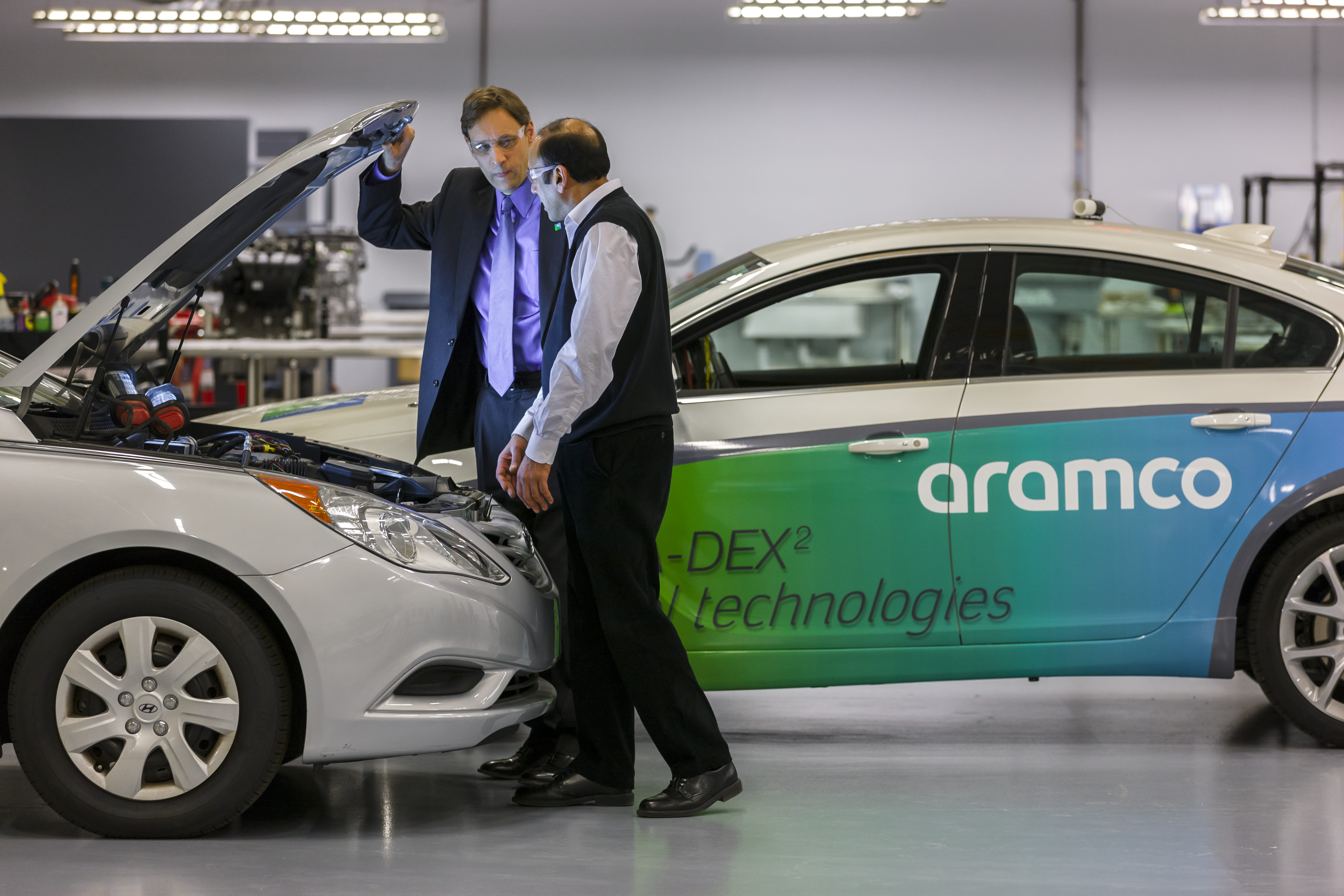
Engine technologies
Well into the future the vast majority of cars on the road will be powered by internal combustion engines. So, it only makes sense to make sure they are as efficient as possible.
Through our global research centers and partnerships with the automotive industry, we’re improving the internal combustion engine and advancing game-changing transportation technologies that can significantly reduce emissions and improve fuel efficiency for energy consumers around the world.
Today's engine, re-imagined
We’re approaching the emissions challenge in an entirely new way: by making internal combustion engines (ICEs) — and the fuels that power them — produce lower levels of emissions while still delivering high efficiencies.
Projections show that the majority of cars on the road will still use combustion engines until at least 2040. So, we believe that in the short to medium term, advanced, efficient ICEs are the most effective way we can reduce CO2.
Experts and scientists across our global research centers are working in partnerships with the automotive industry, to push these advances forward — to simultaneously address global climate and mobility challenges.
There are a number of variables in an ICE engine that can be altered to achieve higher efficiency and lower emissions, and our range of transportation technologies cut across each of these areas.
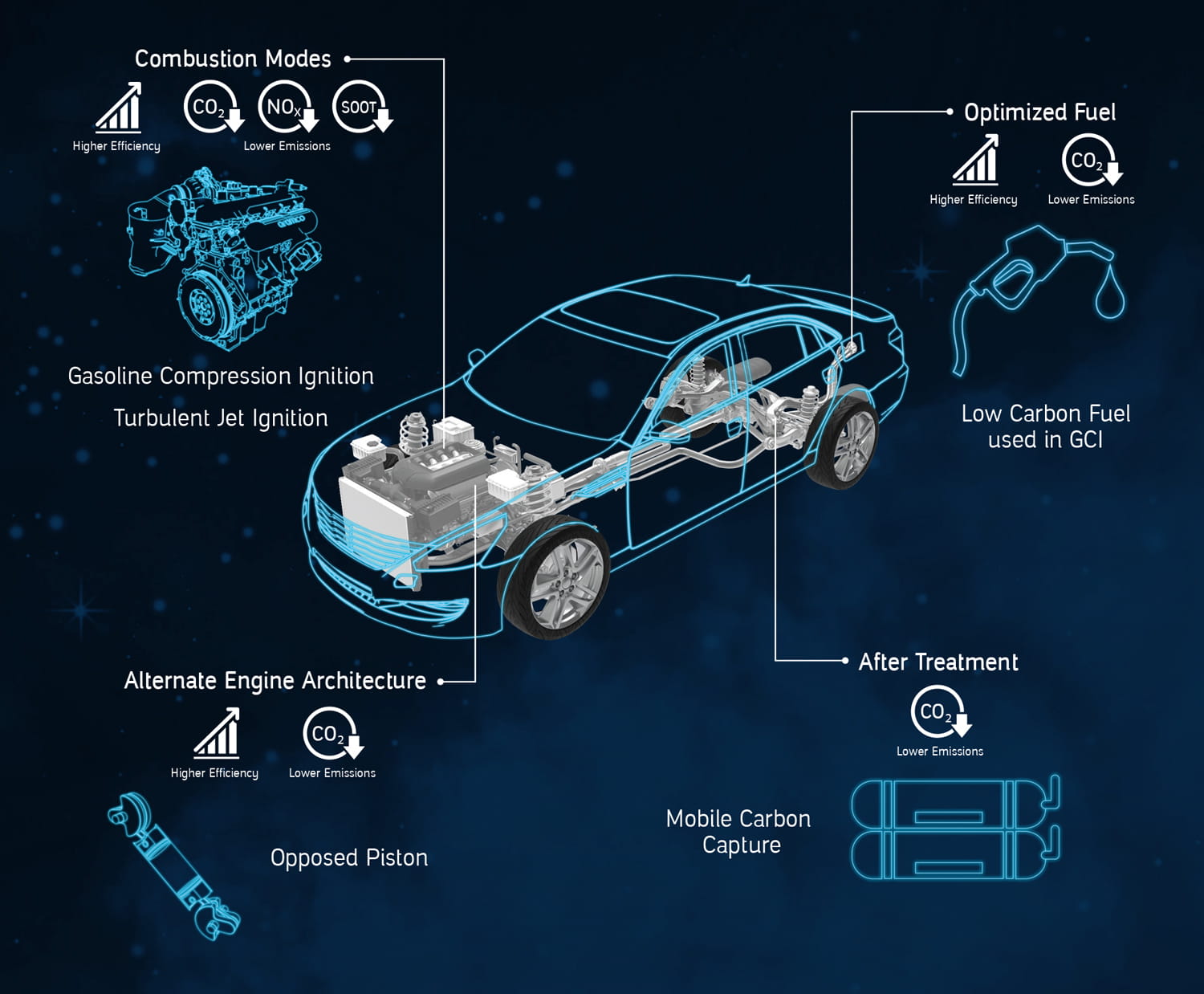
We're innovating across the vehicle to drive efficiency and lower emissions.
Gasoline Compression Ignition
Compression ignition engines are the most efficient internal combustion engines on the road today. However, most of these are powered by diesel fuel, and produce significant levels of soot and NOx emissions, which require complex after-treatment.
Gasoline Compression Ignition (GCI) engines use gasoline — fuel which ignites less readily than diesel — enabling improved mixture formulation prior to combustion, in turn making it easier to control emissions.
GCI significantly enhances the efficiency of the gasoline engine, reducing fuel consumption and CO2 emissions by 25%. This technology enables ultra-low engine out emissions, while harnessing the efficiency of diesel engines.
The benefits, which can be realized by using market gasoline, can be further enhanced by running the technology on an optimized, lower-carbon fuel.
We’re exploring many different ways to implement this technology — some of our work is independent and some is done in partnership with automakers, technology developers, and research institutions. One example is our partnership with Mazda, which aims to lower CO2 on a well-to-wheel basis through the co-development of advanced engines and fuels.
The benefits of improving engine efficiency with our GCI technology
combined features
GCI combines the best features of gasoline and diesel engines — lower emissions and higher efficiency at a lower cost.
hybridization
the benefits of GCI may be further enhanced by hybridization.
meet regulations
GCI will help automakers to meet their regulatory and policy obligations.
multiple applications
GCI can deliver benefits not only in passenger cars, but in heavy duty, commercial trucks as well.
reduced investment
GCI offers the potential to utilize current gasoline and diesel engine architectures and fueling infrastructure, significantly reducing investments and accelerating reductions in emissions.
Turbulent Jet Ignition
We’re developing an ultra-lean combustion strategy for gasoline engines using Turbulent Jet Ignition (TJI). TJI is a technology that greatly enhances the ignition process, improving fuel efficiency and reducing emissions.
The technology enables the combustion to progress in a stable manner when the fuel-air mixture has been diluted with additional air or exhaust gas.
It works by premixing a small quantity of air and fuel in a pre-chamber — a small cavity that is separate from the main combustion chamber. This mixture is then ignited, generating turbulent jets of hot radicals which enter the main combustion chamber, providing a wider distribution of ignition sources than a traditional spark plug.
We have developed considerable understanding of this promising combustion mode, focusing on two distinct approaches: Active and Passive.
Two approaches
Active:
A spark plug and secondary fuel injector are positioned inside the pre-chamber. This injector introduces a small quantity of fuel, which is then ignited by the spark plug to create the turbulent jet of radicals that ignite the main charge in the combustion chamber.
Passive:
No secondary injector is required as this approach relies upon the piston design and injection strategy to guide a small quantity of air and fuel into the pre-chamber to be ignited by the spark plug.
While the two approaches leverage different hardware, both yield greater efficiency and reduced emissions.
This technology has been successfully tested by several technology providers, and Aramco is currently integrating TJI into an advanced gasoline vehicle. If vehicle integrations prove successful, we hope to see it commercialized in the near future.

The benefits of improving engine efficiency with our TJI technology
compatibility
TJI has the potential to enable our GCI technology to work across a wider range of rpm/torque combinations, therefore extending the benefits of GCI.
cost effective
the hardware architecture is simple and cost effective to implement with current engine hardware.
lower emissions
potential for high fuel efficiency and lower pollutant emissions compared to conventional gasoline and diesel engines.
meet regulations
TJI can assist automakers to meet their regulatory and policy obligations.
Opposed Piston Engine
Opposed piston engines provide a promising alternate architecture, offering significantly enhanced power and efficiency.
The engine uses two pistons per cylinder, working in opposite reciprocating motion. This design reduces friction and heat losses, bringing greater efficiency, which in turn improves fuel economy and reduces emissions.
This is a versatile solution — the opposed piston engine can be configured to use either spark or compression ignition, and run on gasoline or diesel fuels. When combining the architecture with our other technologies there is the potential to create even greater efficiency and emission reduction benefits.
We’re partnering with other technology developers, such as Achates Power and INNEngine, to explore different ways to construct opposed piston engines.
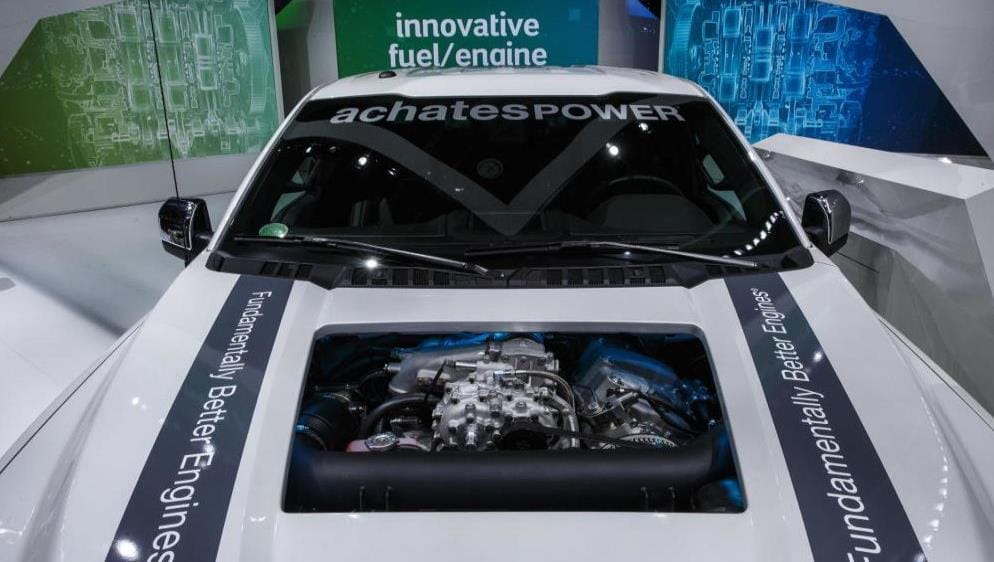
Achates Power
Achates Power has developed a two-stroke opposed piston engine with an inline arrangement of the cylinders and two crankshafts. We are partnering with Achates Power to develop a three-cylinder Gasoline Compression Ignition (GCI) version of this engine, with the aim of delivering an improvement of up to 50% in vehicle fuel economy, while meeting future emissions standards.
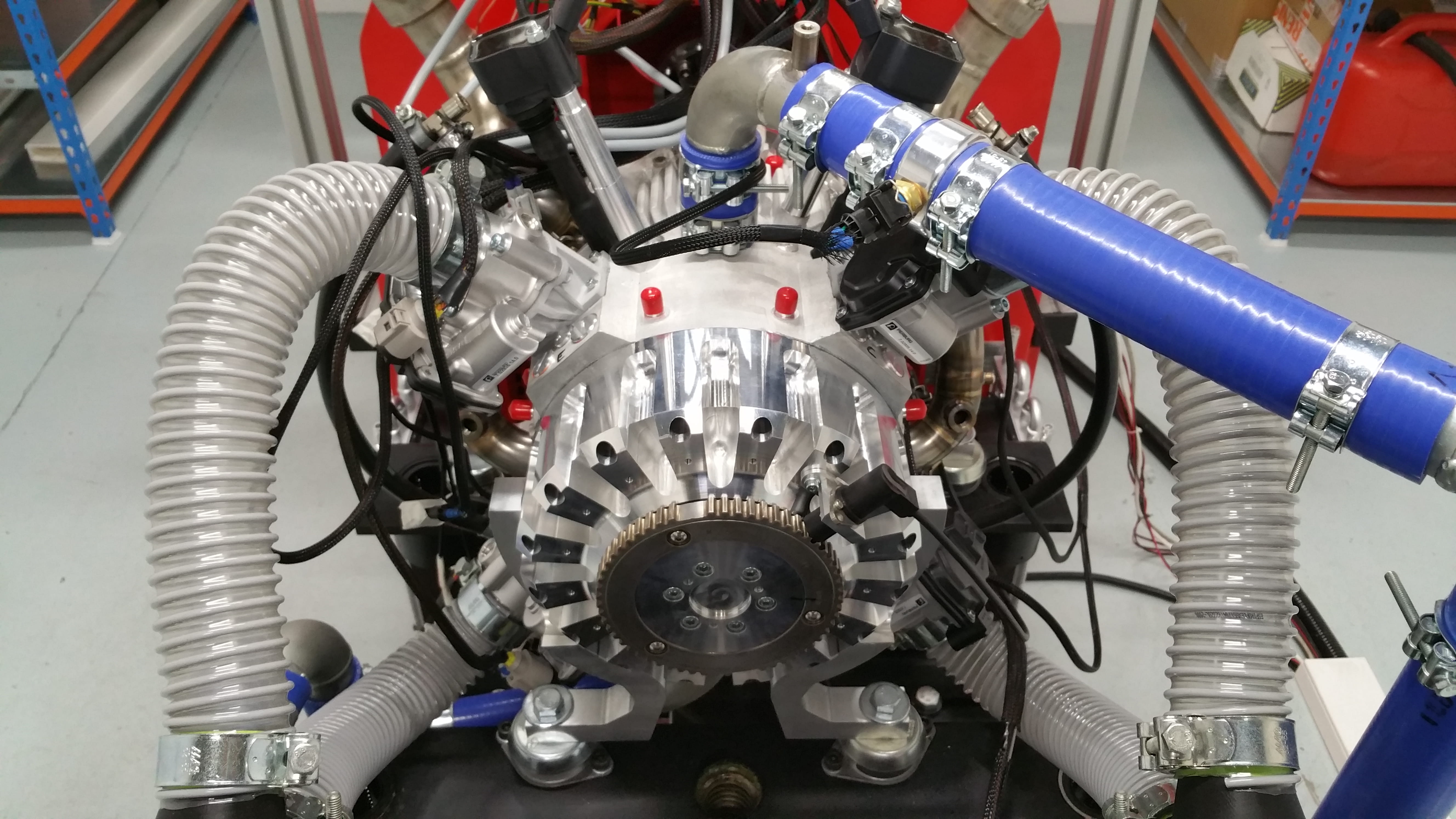
INNEngine
INNengine is working on a two-stroke opposed piston design in which the pistons are arranged around a central shaft that delivers torque to the transmission. This arrangement makes the engine more compact. The design provides two combustion events per cylinder, per engine revolution, which is four times more than a conventional four-stroke engine, offering even greater power density. As a next step, we plan to work with INNengine to further the development of this technology.
The benefits of improving engine design with our opposed piston engine technology
efficiency
opposed piston engine technology has the potential to exceed diesel-engine efficiency.
compatible technology
the solution is compatible with existing market fuels.
lower-costs
opposed piston engines are less complex due to fewer parts — valve train and cylinder heads are non-existent with this simplified construction — therefore there is the potential for lower manufacturing costs.
compact design
the compact design offers both weight and volume reduction.
Mobile Carbon Capture
Mobile Carbon Capture (MCC) is an innovative technology, which can lower the CO2 footprint of the transport sector.
Refined over nine years by our scientists, the latest variant of the technology can capture up to 25% of the CO2 emitted from a vehicle’s exhaust. The CO2 is stored on board the vehicle, and can be used in a variety of industrial and commercial applications once offloaded.
We have successfully demonstrated MCC technology in a Ford F-250 pickup truck and a midsize Toyota Camry passenger vehicle. Recently, our team also began integrating the technology into a class 8 heavy-duty truck. By combining MCC with GCI and other efficiency improving technologies, we are aiming to achieve a 50% reduction in the CO2 footprint of the truck.
MCC has the potential to significantly reduce the emissions associated with freight transport, and would be especially viable when applied to captive fleets.
Mobile Carbon Capture progress
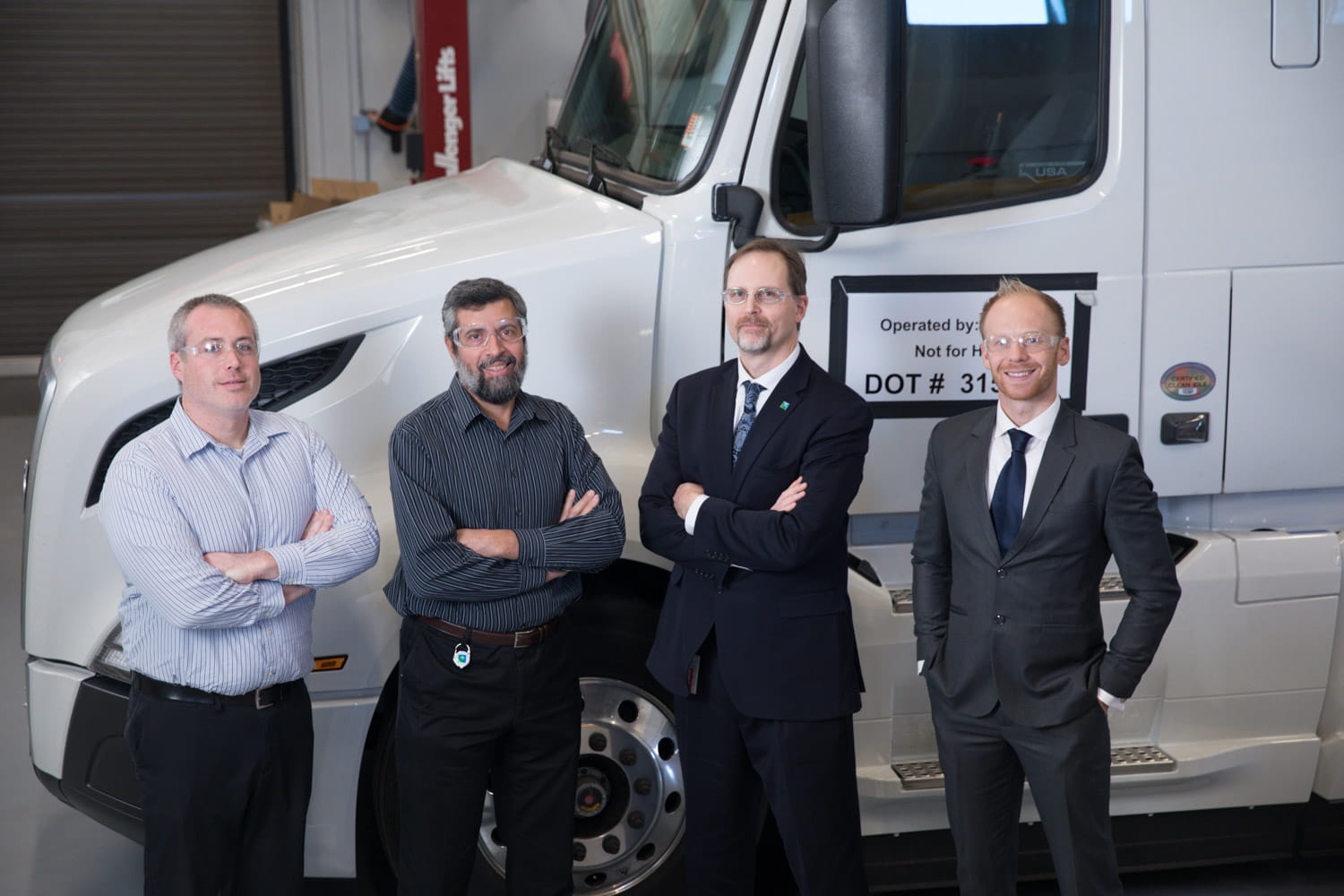
The benefits of our Mobile Carbon Capture technology
50%
we’re targeting a 50% CO2 avoidance for this technology.
freight emissions
MCC has the potential to significantly reduce the emissions associated with freight transport.
CO2 reduction
the technology can be used in tandem with other technologies to further reduce CO2.
Contact us
By partnering with the automotive industry we can help get more efficient engines on the road faster. Working together we shorten the development timelines associated with deploying new engine technologies.
For further information, please get in touch:



